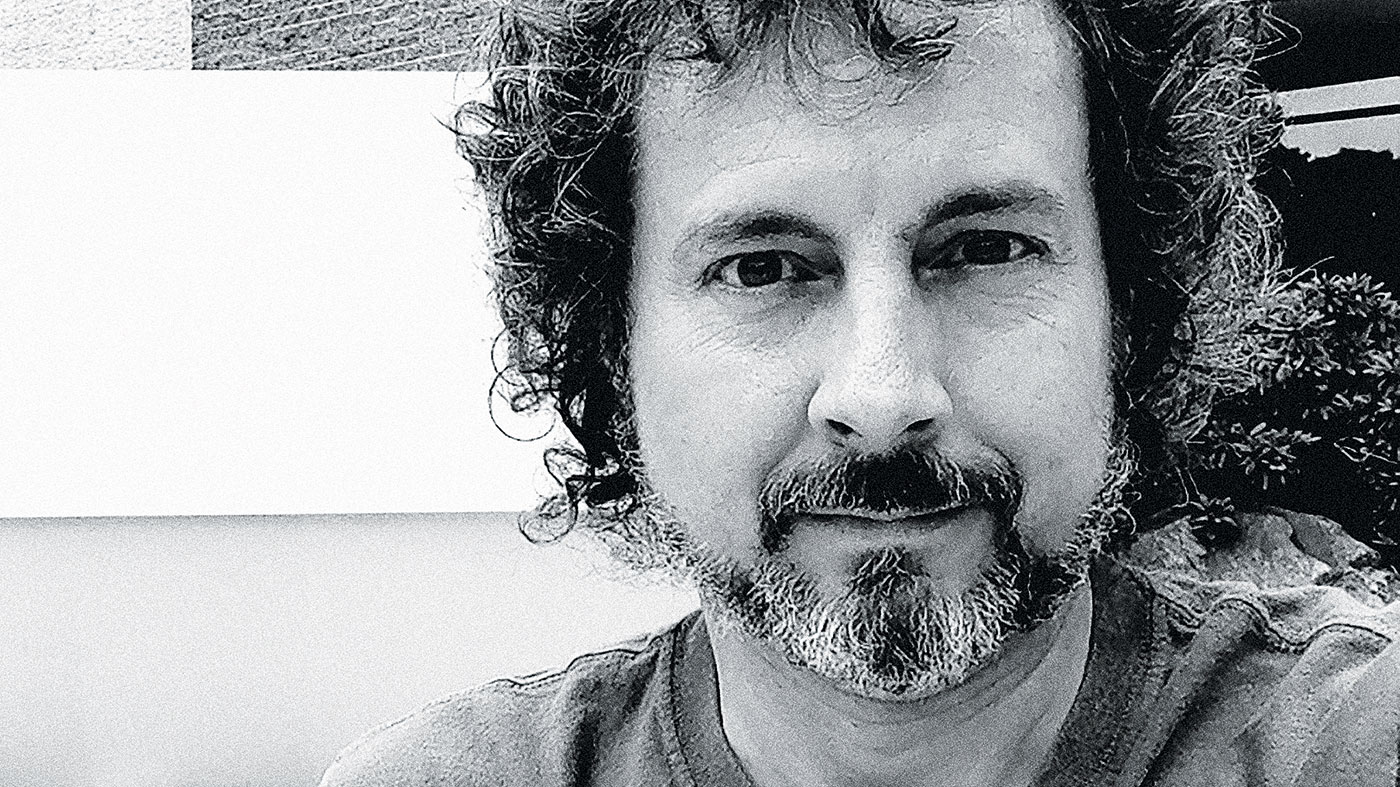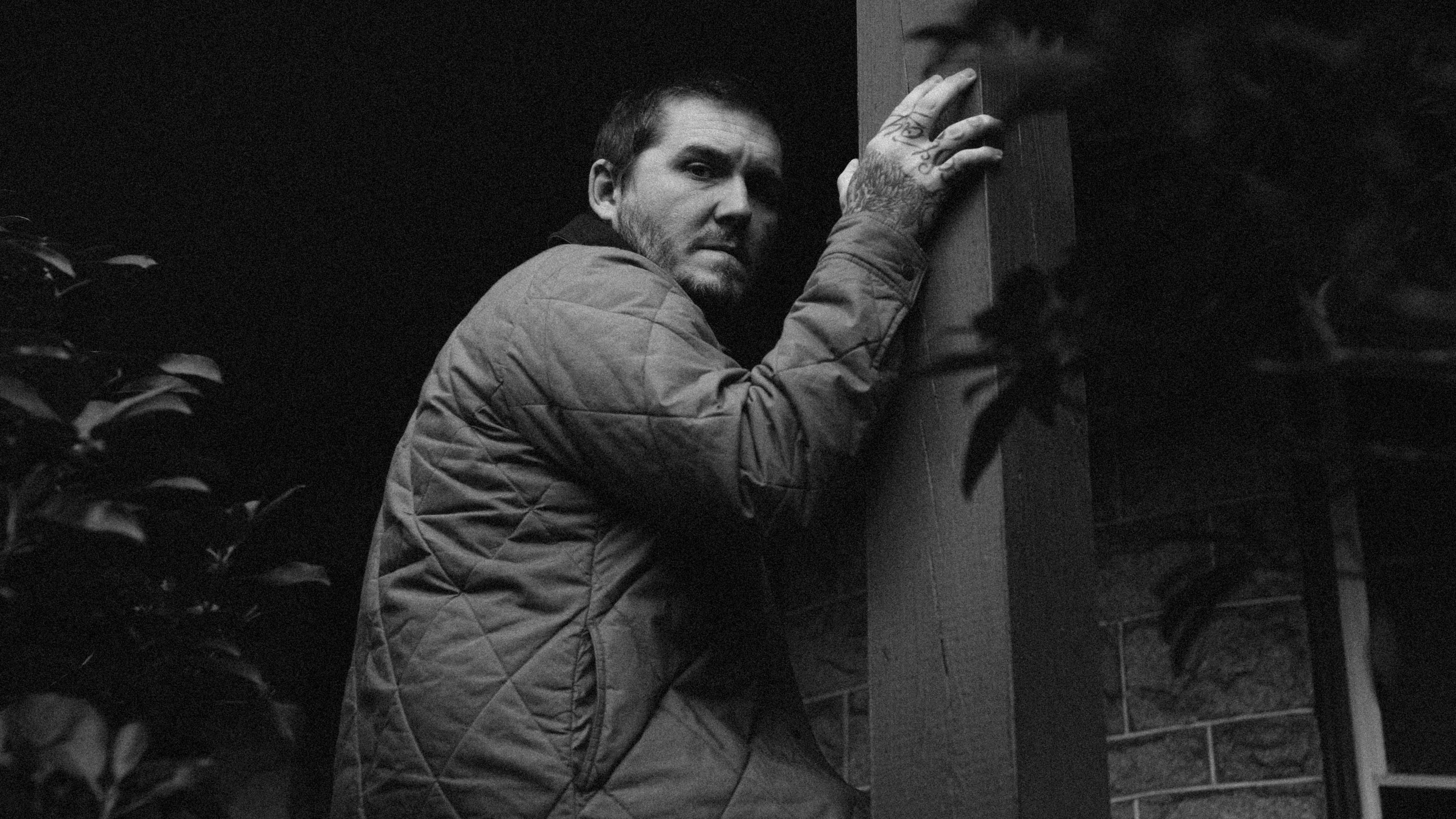
Want all the hottest music and gear news, reviews, deals, features and more, direct to your inbox? Sign up here.
You are now subscribed
Your newsletter sign-up was successful
Give the drummer some. They can make a record great, and Brian Fallon is well aware of it. When we meet to talk about the landmark solo album he's about to release, he's full of enthusiasm for Kurt Leon before we even sit down, whose inventive playing brings new colours to some of the finest songs Fallon has ever written.
"He’s one of the best drummers I’ve ever heard," breams Brian. "It’s crazy the stuff that’s he’s done – he’s played with Brian Blade. He’s now in the live band and I didn’t know him before the record. We did the record and I said, ‘You’ve got to play with me, I can’t let this go.’ It was just amazing."
Local Honey is a special album. It's not the heart-pounding, highway-conquering punk rock and r 'n' b hotrod many will know and admire Fallon for from his Gaslight Anthem work. And sonically, under the detailed production ear of Peter Katis (The National, The War On Drugs) it's a marked departure from his previous two solos albums, 2016's Painkillers and 2018's Sleepwalkers. And yet it speaks just as loud and clear in its own, heartfelt way. It's pure Brian Fallon, more than anything he's done before.
Here he speaks with marked candour about the genesis, toil and vindication behind the album's creation. But we should still start with the drums…
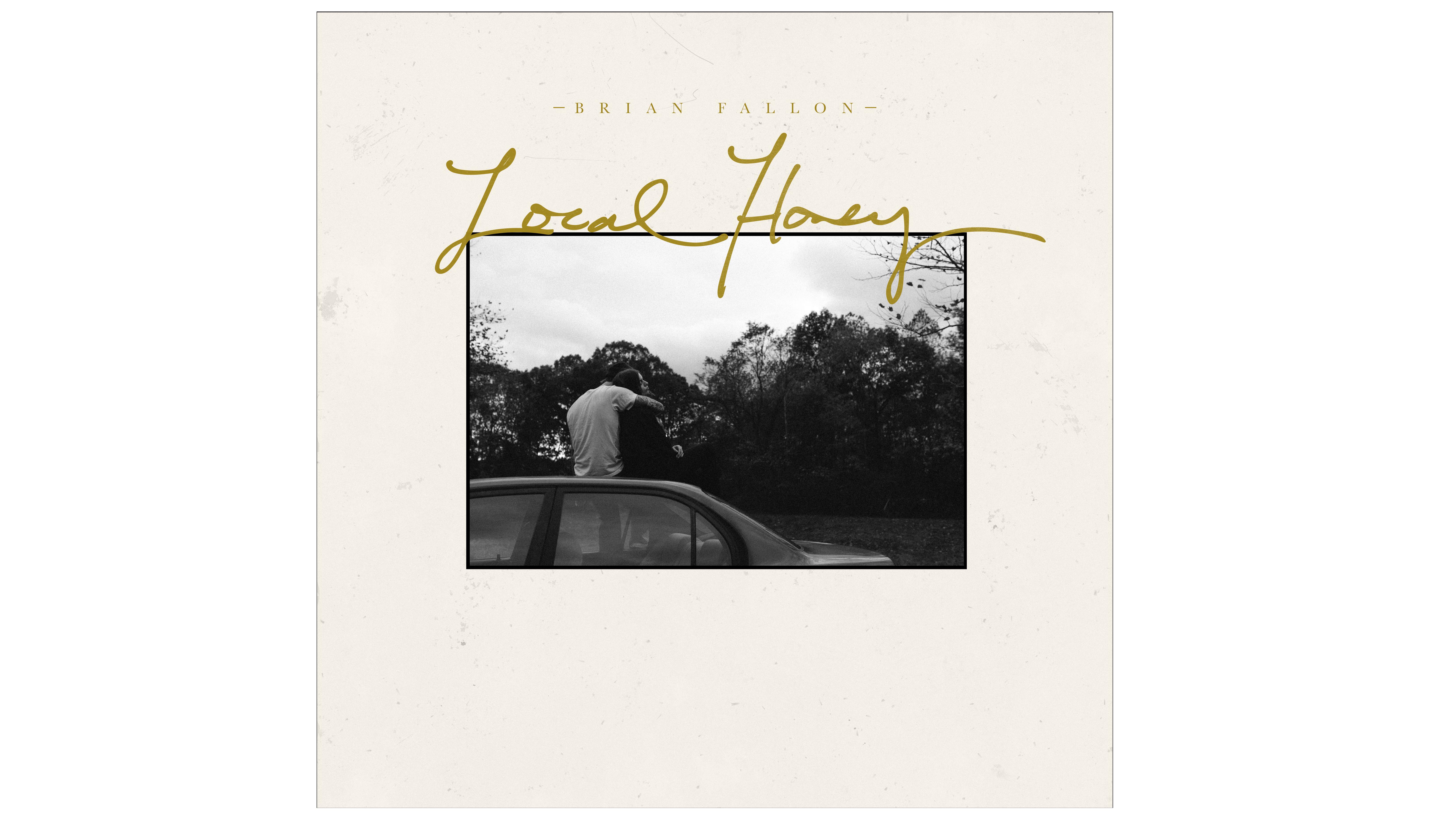
Did any of the songs change due to that percussive element?
“The big changes happened before I went in because I had this idea of what I wanted it to sound like and then I started writing it, and somewhere in the middle of the summer last year I just flipped the whole thing.
"I was trying to make the songs louder, more rock I guess and it was just not happening. I thought, this sucks – it sounds terrible. Most of the songs I rewrote and then a lot of the songs I decided, if this song can survive on piano and guitar by itself then it can live. If not I’m throwing it away. A lot of them I would do that way; some of them stayed and some of them left. Then others I wrote from scratch when I figured out what I was going to do.”
Want all the hottest music and gear news, reviews, deals, features and more, direct to your inbox? Sign up here.
"I tried to do the cardinal sin which was to ignore your subconscious"
So it wasn’t a case of you coming off your acoustic tour last year and wanting to a write a more acoustic-based album at all?
“It was, in my subconscious. What happened was, I tried to do the cardinal sin which was ignore your subconscious because I didn’t realise then what was happening. In the summer the thing that I found out is I was on those tours, I did the US in the fall and over here [UK and Europe] in the February of last year and I was like, you know what – that’s what was moving me, I’ve got to follow that.
“I think I was listening to Time Out Of Mind from Bob Dylan, I was thinking about the tour and listening to that record and that’s when I thought, this is what it’s supposed to sound like. I know what I’m doing now. And then that was it – I just went forward.
"And I didn’t even have a producer. Peter hadn’t even joined yet. I think I talked to Peter about a month before I went in. I was like, “Are you free by any chance?” Peter does like 900 records a year by the National and War On Drugs, no big deal, right? He said, “I’ve got the whole month of October.” I said I’d be there, I drove up to Connecticut and we did it.”
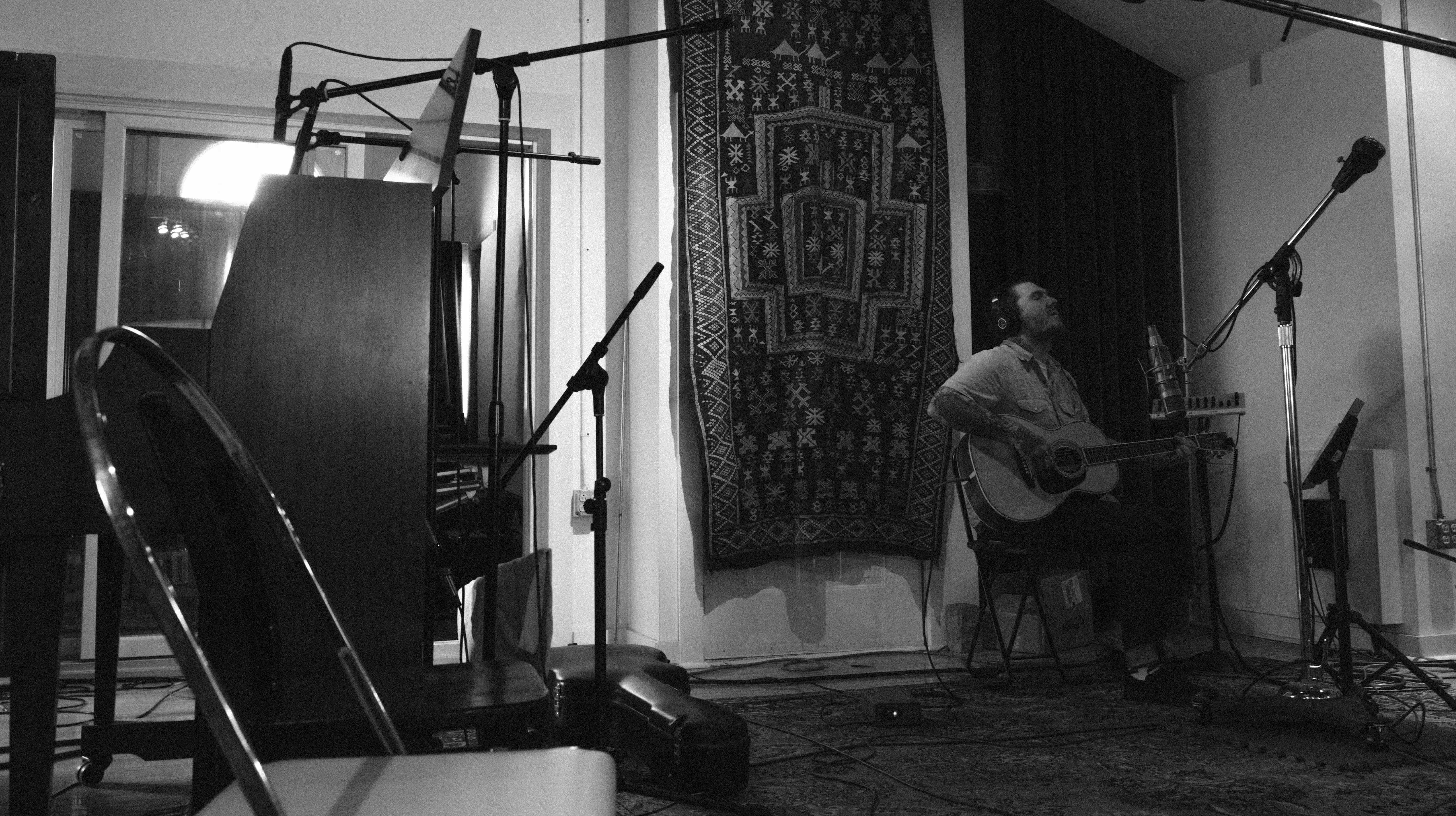
This isn't an Americana album – it's not the Brian Fallon folk album. Was that a challenging path to avoid going down?
“That’s Peter though. If you left me to my own devices it would probably be more traditional, there would have been fiddles on it. I think that’s why I went to Peter. I think people make traditional Americana records better than I could. I didn’t want to compete. Because I’m the kind of person where if I can’t at least do well, I don’t want to compete. I’m not going to run you in a race because I can’t run.
"The guys I’m influenced by too, like Tom Waits and Bruce Springsteen, they’ve always been part of it but a little left of centre"
“Also, I admire the people that are out right now but I don’t what to be like them. I want to do my own thing. The guys I’m influenced by too, like Tom Waits and Bruce Springsteen, they’ve always been part of it but a little left of centre.
"Even Bruce’s acoustic records, they’re not traditional Americana records and especially Tom. They’re a part of it and they embrace it. I embrace Americana and that’s one of the music I listen to the most but I’m not trying to shoehorn in there."
One of the striking things about this album is the way it balances a sense of intimacy and being exposed with sonic details – how challenging was that to balance?
“Extraordinarily difficult. We did so much work on adding things, taking away things, moving things. It’s not only about the way it’s recorded, it’s how it sounds with the other things.
"Normally you make a record and you track drums, bass, guitar at the same time or you do everything one on one. But it’s ok – here’s my coffee, here’s the sugar, milk and here’s the spoon. You’re adding stuff together. With this, you put an element in and you’re like, no it’s off balance. So that comes out. Then you put another element in, that works. Then you put another in and it’s off balance. It was such a process. It was weird and I’ve never done anything like it but I’ve also never got such a good result.
"Peter Katis really inspired me to try different things because I was very much a traditionalist"
“What it started with a lot of the time was I’d go to the piano and just play the song and record it. Vocal and guitar or vocal and piano. That’s it. Then we would start building everything up. But sometimes by the time it got to the playing or the drums would go on, whatever I did in the beginning would go away. So it was constantly evolving.”
And you had to be open to that?
“Yes, and at first I was not. But then Peter would be like, “Look, it’s 2019, we don’t make records like the '60s anymore. Those records have been made, they’ve already done the best that’s going to happen. I think we should go forward.’ He really inspired me to try different things because I was very much a traditionalist. I was, live or it’s not real. But apparently there’s all these different ways to do it.”
There’s actually a plenty of electric guitar going on and those parts fit in without overpowering the songs. Do you feel that’s where a lot of your woodshedding as a player has paid dividends?
“Big time because with those kind of songs you can’t just shred a solo. Maybe it’s because I’m older and I’ve been playing a lot longer, I learned how to do crazy stuff and how to play crazy licks but the hardest thing guitar players learn is you have to know when to stop. When not play, and you can’t be shredding the whole time. Once you have that skill you want to do it – you want to play because playing’s fun but not on these songs, you’ve got to be careful. It’s more what you don’t play.
“With this stuff I was looking at the way Daniel Lanois plays, he’s got that band Black Dub that he plays in and if you listen to his guitar playing it’s extremely held back but it’s tasteful.
"Even the Tom Waits records Keith Richards played on, like Rain Dogs, he would play these extremely tasty things but it was way in the back. One note had to mean everything. If I didn’t go through the last two years, and I’m still doing it… I’m learning. I’m way into Julian Lage now, I’m learning all these different things. But you’ve got to hold back, that’s the secret. Hit the right note at the right time.”
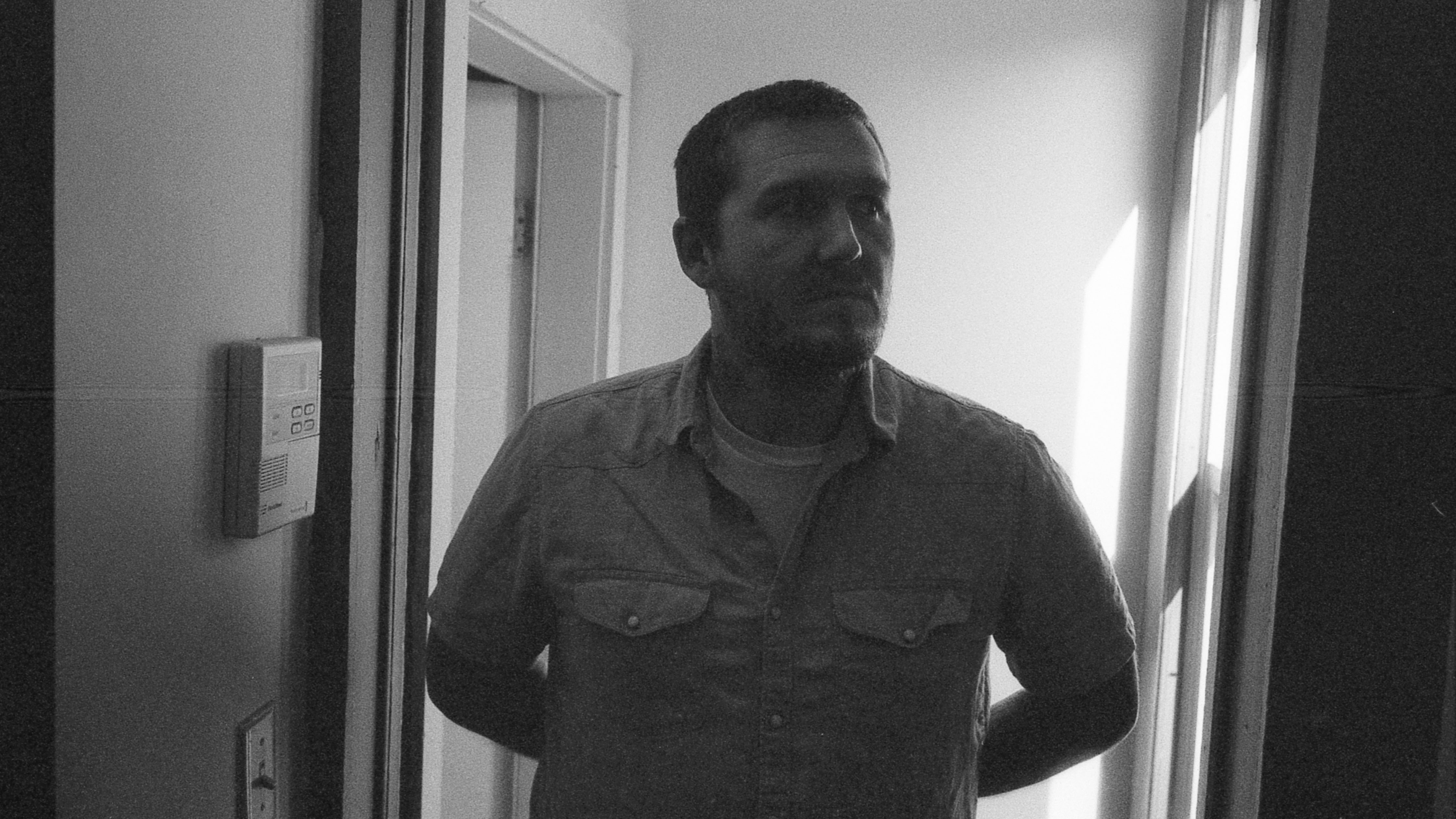
Are some of the acoustic fingerpicking patterns in these songs challenging when playing along to the percussion?
“It is but I lead it. The big thing was Kurt had to find something that fits that’s not the train beat. But Kurt would not play the train beat, he said, “That’s what everybody plays and I’m just not interested in doing that.” Ok, great. Show me something cool then, and he did.
“We treated everything as if it was living, so my part would evolve a little bit, his part would evolve a little. But fingerpicking, that’s not for the faint of heart. I’m still learning – there’s like 50 million patterns out there. Again though, you’ve got to be tasteful with the fingerpicking.
"You Have Stolen My Heart is so much harder than it seems"
"It’s funny because I learned the fingerpicking from Mark Knopfler and he did the records with Emmylou Harris and that later period solo work like All The Road Running. There’s a song he did called Haul Away and it sounds like an old Irish ballad. I was trying to figure it out and he’s using standard chords but he’s playing it like a piano, not like a guitar.
"That was one of the tricks I used on the record, chord-wise. When a piano moves chords it’s not like 1,2,3,4 move, it’s 1 and 2 and 3 and 4. If you move guitar chords like that you have to adapt your strumming and your picking. Jeff Buckley did it really well and Nina Simone’s guitar player [Alvin Schackman] did it amazingly.
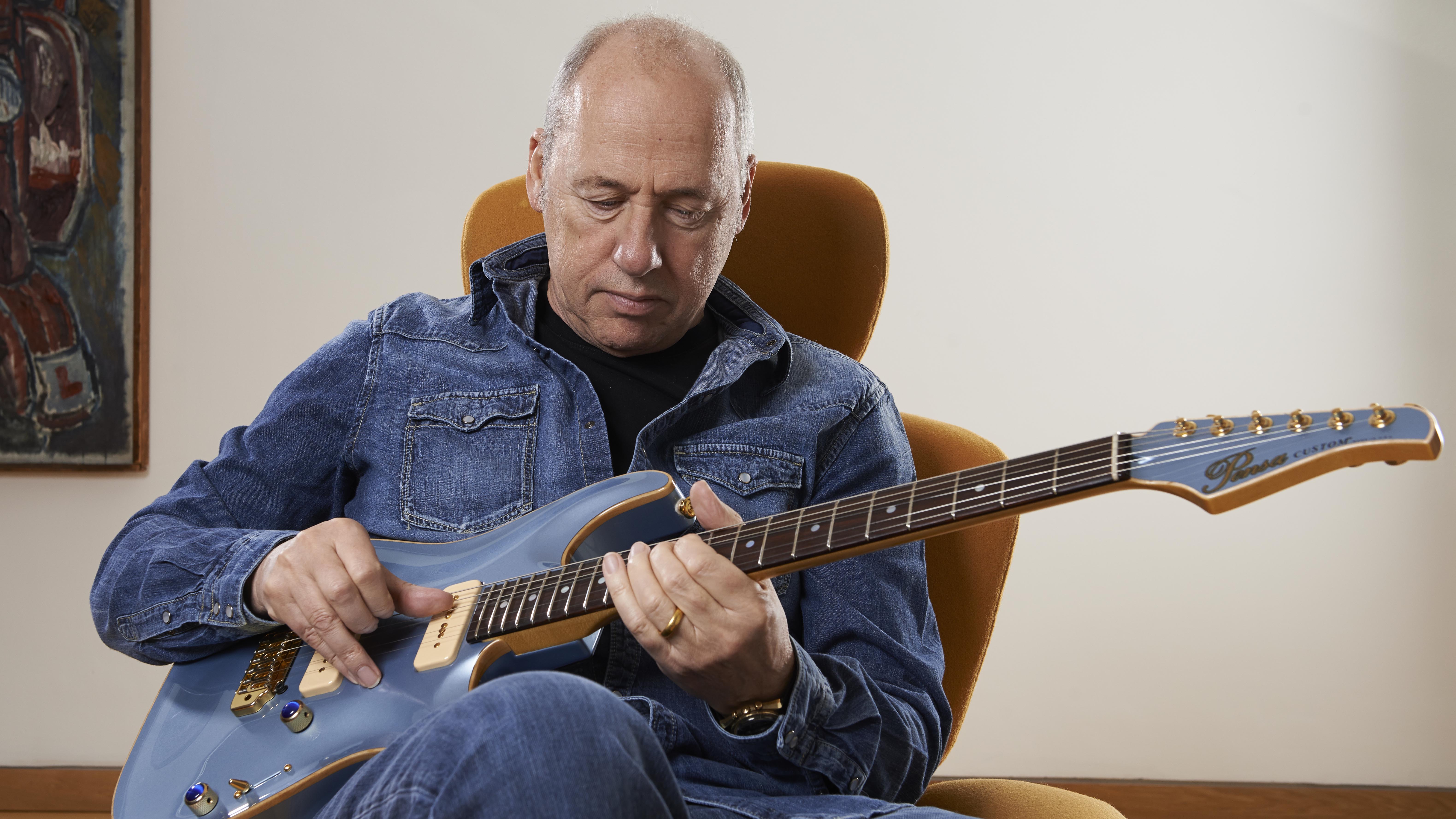
"So I was learning that these chords were moving at different times but it wasn’t a fingerpicking song, how do I do this? And on Haul Away, Mark was strumming with his fingers but it’s not up and down, there’s not like a bass note and then a high strum – a boom-ring, boom-ring, to keep the beat. With this there’s only the ring. So it’s rest, ring-ring. To get that delicate strum… the strum on the song You Have Stolen My Heart is so much harder than it seems."
Playing and singing that too, not easy
“At the same time! So all those tricks, and the drumming and the lyrics are like the heroes of the record. The funny thing is I had that small-bodied Martin I showed you last time. There were vintage guitars laying around all the time. There were a couple of Gibsons laying around and they were cool and we used them but the main guitar we used was that 00-42 Martin and my National Resonator. All over the record.”
So the two were layered because they brought different qualities?
“Yes, and when you put them together, it was so weird how that worked. And the resonator, I couldn’t believe it. I just brought it along thinking I’d play some slide on it, whatever. But it killed it! But that wasn’t me, that was Peter – he was all about trying things.”
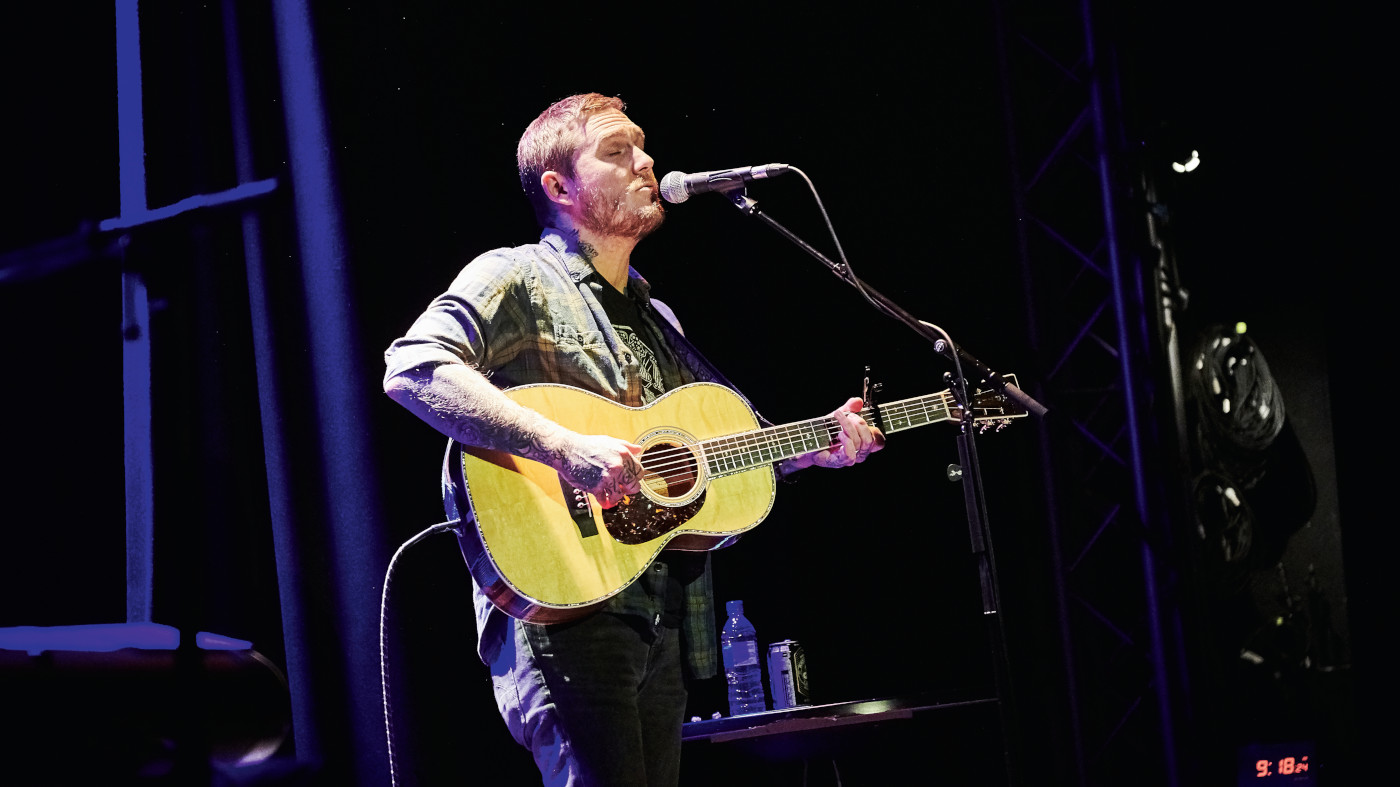
Did you play all the guitar parts on the record?
“I played 90% of the guitar on the record, but Ian [Perkins] he played some slide parts. He did some cool delayed stuff. If I’m in Wilco, I might be Jeff and he’s Nils.
"But funnily enough, on the first song [When You're Ready] the whole thing was fingerpicked and then I was like, I don’t know because fingerpicking it makes it sounds like the train beat thing and my drummer, the hero, Kurt Leon said, “Give me the guitar, you should strum it like this because the guitar is like a dad playing the song to his kid on the side of the bed. Dad’s don’t know how to play guitar, they’re just goofing so they would play it like this” and it sounded perfect, so I said, "Go play it."
"So the first song on the record, that’s not me, that’s Kurt. Which is hilarious because I did all this work and then Kurt does it!”
It’s good that you’re open to that though
“You’ve just got to get the best – whatever’s best”
The lyrics to When You're Ready really hit me as a father, but also, you’ve always kept the parent part of your life private, understandably, so was it hard for you to share that song?
“It was but I think the whole record is about that. I’ve always had this wall that I’ve put up. Even the most personal songs I’ve written before I never opened up all the way. I guess it’s maybe the age or the place I’m at in life where I think, I’m just going to do this and I’m not worried about hiding anything. I don’t care… well it’s not that I don’t care because I do care, but I’m ok with being uncomfortable. I’m ok with being exposed. This is how I feel about my daughter, it might not be the most politically-charged world-changing song but to me it is, because I feel that way about my kids.”
"I wish I was cool but I don’t mind that I’m not"
Part of that place you've arrived could be the audience you’ve built – there’s a trust there. What kind of audience do you feel you have now?
“I think that’s my entire audience now – outsiders. People that like punk but never fitted in with the punks, people that likes Americana but never fit in with the Americana. I feel that my audience is built by people who never quite fitted in. Because that’s what I am.
"I made a joke one time that apparently my band was cool in 2009 but I didn’t know that, nobody told me and by the time I realised that it was too late, it had gone. So I never got to enjoy the cool factor but I always felt that I was a day late, and not in and I didn’t know.
“Now it’s not even like I don’t care, I totally care – I wish I was cool but I don’t mind that I’m not. And I’m actually comfortable not trying to be cool. The last thing I want to be is in my 40s and trying to squeeze myself into the pants I was in during my 20s. To be that’s the most distasteful thing I could do.”
It feels like 21 Days is a song that's already connecting with people
“That song came from a lot of therapy. That song was completely influenced by my therapist.”
A lot of people will listen and think, that song is about quitting smoking. But it’s not?
“Somebody wrote, ‘It’s about quitting smoking’ and that’s about 10% of what it is. It’s about changing your life and when it says ‘21 days ‘til I don’t miss you’ – the you is you, it’s the old you or it’s whoever you’re running away from. Whether that’s an addiction… for me it was mostly about mental health. I’m running away from the me that I don’t want to be. I’m leaving that behind and becoming… which is extremely difficult to do when you’re trying to change your life, it’s difficult to do, it makes major commitment and change.”
“That song, I tell you, it was like building a house one screw at a time"
Musically, it feels like something that could easily have become a full-blown rock song
“It was a full on rock song. This is what happened with that song – I sent the demo to Peter. Everyone loved the song, they loved the demo of it.
He goes, “I’m not sure I know what to do with this kind of music.” And I said, “What do you mean?”
He said: “I like it and I can appreciate it but I don’t know what to do with it, I don’t know how to produce this.”
I said: “I don’t know what you’re talking about – this is the best song.”
He said, “Look, I’m not trying to tell you I don’t like the song, I’m just saying I might not be the guy to produce this song the way you have it right now. I don’t know if I can do this."
I went back and told him I might leave this song off the record. But it meant too much lyrically. I didn’t know about the music but lyrically it meant too much. So I said to my wife, “I’ve got to figure this out”.
“So I sat down at the piano and it took me weeks. For most people the end of the story would be, I sat down at the piano by myself and it worked. No, I sat down at the piano and slammed the piano closed and stormed out, walking around the backyard frustrated, pacing around.
It took me weeks until one night the kids just went to bed and I said to my wife, “Can you just sit down and I know this the 15th time I’ve played this song but what about like this?” Tried it and my wife and I were both… that’s the way it should go. And then I recorded it just like that. It was so bare with just one guitar. I said to Peter, “How about now?” He said, “That’s cool let’s try it like that.” But he didn’t say that’s it. It was a good start."
“That song, I tell you, it was like building a house one screw at a time. It was crazy. It was so difficult. I was belting it, really singing it. But [Peter] said, “At first, you’ve got to sing it quiet – talk it.” But I responded, “That’s what you do with The National, I don’t want to be like that.” But he said, you don’t sound like The National, you sound like you. So I did it. We recorded it with me yelling and recorded it with me quiet and I swear to you it hit harder when it was quiet. And I was like, I don’t believe this just happened. But that really opened my eyes to a lot of things. Big time.”
With Peter, were you were sending him demos before going into the studio so he was getting an idea of what you’ll need to do when you get there?
“Yes but with Peter, you send him a demo and he listens to the song and the structure but he does not tell you his ideas. He just starts going for it. You’ve kind of got to go, “That’s cool. That’s too far” because that man would make a wild record if I just let him go. He’s very talented but he’s straight up mix of Pink Floyd with Brian Wilson. He goes for it. It’s wild.”
Even at your level you have to work hard at songwriting still
“It was hard, you have to work at it all the time.”
Is it tempting to throw a song away when you have to rework it to such a degree?
“There was one called I Don’t Mind When I’m With You that I loved. That song was triple the speed, same with Lonely For You Only. Very fast songs. But something about the lyrics and there was one little bit of the melody, it was like a hook that was in me. Not a musical hook, like a fish hook. I kept pulling me. I tried to throw those songs away two or three times because I had other songs. There was something pulling me so I had to keep clawing away. And honestly, it took months.
“The only song that came out quick was When You’re Ready. Vincent took forever. I wrote 20 versions of that song lyrically. It was forever."
Vincent is written from a female perspective, like Here Comes My Man
“Yeah, and Vincent was my attempt at writing 100% fiction, so it was actually based off a couple of stories I heard in the news. Not current, a while ago. So it was stewing around in my mind and what happened was I watched the documentary on Nick Cave and he was talking about the album Murder Ballads and I got to thinking about Nick Cave and Bruce Springsteen, writing the Nebraska songs. I thought, I’m going to try and write a fictional song – fictional in details but 100 per cent non fictional in emotion.
Honestly, that was what the thing was moving to me, because everybody knows what that feels like to be tired of a situation that’s really bad. How do you get out of it? In fiction you can do anything, you don’t have to follow the laws and the rules of what you’re supposed to do.
“That song started from the first lyric too. I was listening to Dolly Parton and I thought of people who were named after songs because my daughter is named after the song Layla. I was always wondering, I wonder if they hate that? Do people named after songs hate the song they’re named after or can they embrace it? I’m not sure and I feel bad because I did it.
"I chuckled to myself and said, "My named is Jolene, but I hate that song", and I thought that was pretty funny… then I thought, oh that’s dark. I sat at the piano and worked on it and had that first little section; I was baptised in a river when I was young. And that’s all I had for months.
“Then I just wrote 100 different versions because I’d never done a fiction song. So in my head I wondered, what happens? I had to figure out not what I wanted to happen but what is the character telling me happens. And not only that but what makes sense in four minutes, and it was hard. Now, it’s so rewarding because it’s one of my favourite songs on the record.”
So that song started with a lyric, is the process of songwriting kind of random in terms of the initial inspiration for you?
“Yes, sometimes it’s like a riff that I’m fooling around with, sometimes it’s a lyrics, sometimes a title. Sometimes I just start fishing; I sit down, play and start singing stuff. A lot of times it’s a drum beat that I hear.”
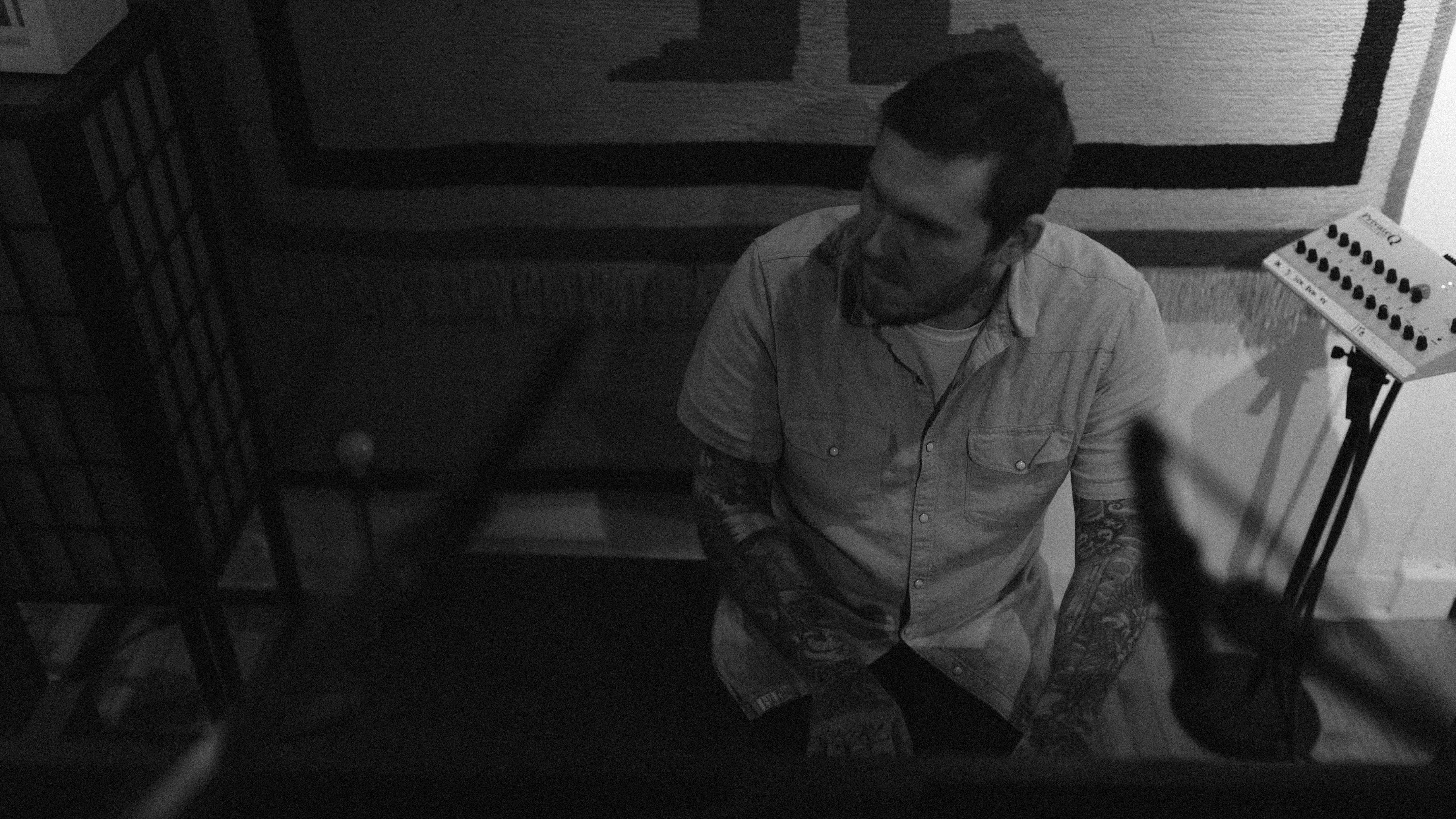
You mentioned the piano impacting your chord approach, does that instrument help get you out of comfort zones as a writer?
“Sure but at the same time I will say this though. I started to learn all these different chord progressions because I’ve always been I / V / vi / IV a lot, and variations of that. But you know, I like that chord progression still. And I said to Peter, "I learned all this jazz stuff so should I be using these chords?" And he’s like, “No because it’s not sad, use the sad chords. That’s what’s good.
"It kind of gave me permission. I didn’t care, I’m using the chords I want to use. Even the song Nocturne by Julian Lage, it’s B flat minor to A flat and then D flat. It’s the same chord progression I use but it’s like this really fancy jazz song but it’s kind of the same thing.”
Do you think there’s this element of being at peace with that being a core part of your style, something you can experiment with there's this core?
“I think it’s a thing that’s my thing. If you boiled it down it’s the melodies of those chords. Well some people might say to me, well that’s boring you used the same chords all the times. I think that’s pretty creative I’ve written like 95 songs with similar chords. I don’t know about you but I think I’m doing alright. You know what I’m saying? I know what the chords are, I’ve got the VIIth, the Ixs, the XIs over the suspends but I don’t care.
“I read in an interview with Tom Petty, a guitar player came up to him, a friend of his, and said, ‘I’ve got this cool chord and I used it in a song.’ And Tom Petty said, ‘Why? Do you know why that chord’s not been used in a song before? Because it’s not good.’ Fair enough, because you know what works? G, D and C. So leave it to Tom Petty, bless him.”
The song Hard Feelings – are you channeling Knopfler there?
“That is my exclusive attempt to write a Mark Knopfler-covering-Tom Petty song. Because it has that feeling. That song took me two years to write. I had the bits of it but I needed to keep going.
"That song is so funny because it uses the same chords that we’re talking about but I don't think it repeats more than twice. It’s constantly moving forwards. When I played the piano on that song I thought, this sucks it’s so hard. The patterns of the chord cycle only happen twice then it moves, throughout the whole song. Like many of Mark’s songs it sounds so simple but it’s so not simple.
You couldn’t have written a song like that two years ago?
“Not a chance. That’s why I stalled two years ago, there’s a song two years ago that wasn’t even done – I just stopped.”
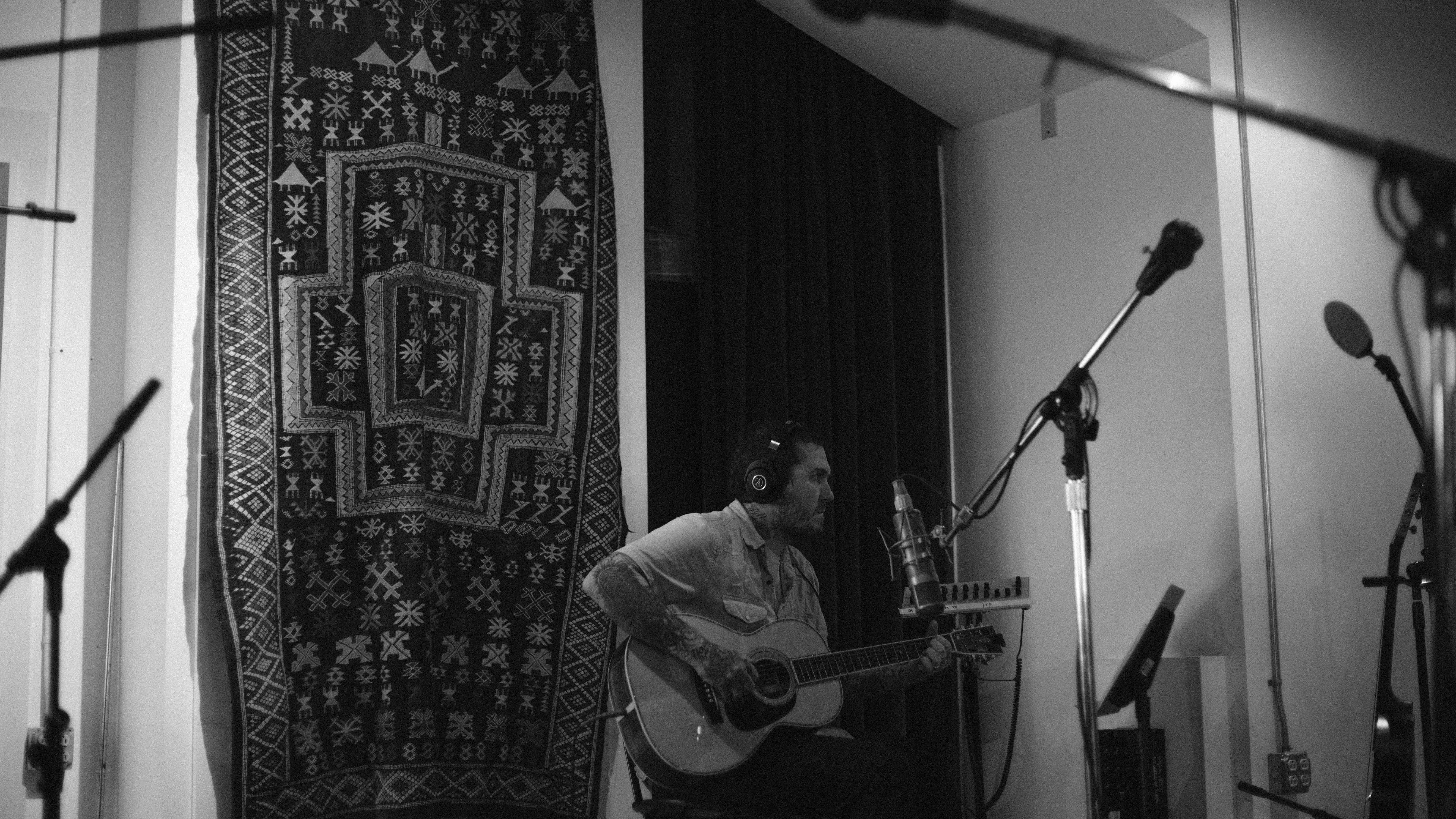
Moving on to gear, were there any pedals that proved useful in the overdub stages?
“We had cool stuff. We were in Connecticut so Analog Man is right there and we hit up Mike [Piera] and drove to his shop a couple of times and picked up all this stuff. So I had this King Of Tone that I always have with me.
"My main setup was a Tele, I was back on the Tele the whole time. So I had my Tele and went into a vintage '80s Tube Screamer, then that was going into my Fulltone solid state tape echo. That went straight into a [Fender] 1966 Deluxe Reverb that I own. I think it’s the best amp ever and that’s the only amp we used.
"We tried, we mic’d up all this other stuff. I’m known for using Vox amps all the time and I’m probably going to get into trouble for saying it but that’s what we used. Every time we tried nothing else sounded as good. That was the main setup and then I think we also had one of the Analog Man Sun Faces and the chorus on there.
“That Tele with a vintage Tube Screamer and an Echoplex into the Fender Deluxe Reverb – that was the vibe. And it just kept working.”
Getting down on the slide with my @nationalguitars and @kurtleon 📷 @perkins28 Brian Fallon
A photo posted by @thebrianfallon on Oct 10, 2019 at 4:10pm PDT
Vintage Tube Screamers – it's not snake oil, there really is something in it?
“I actually did this thing before we left where I tried to buy as many versions as I could. I bought the newest version, the handwired version, I had the JHS version [Bonsai], the Analog Man modded one and then the Analog Man modded sparkly red one. Then the vintage one.
"I had my [Fulltone] Fulldrive 2 because it’s kind of Tube Screamer-ish. And I went through it all, none of them sound like the old one. The closest one was the Analog Man modded 808. That one honestly sounded closest to the vintage one. But that has a thing, is it night and day different? No. But when you plug into it you know.
“But it’s the same with the Deluxe Reverb, I have the new handwired Deluxe Reverb and it sounds killer, but it just doesn’t sound like the old one. However, I’ve never had a vintage guitar so I have no way to tell about that area.”
A photo posted by @thebrianfallon on Jan 24, 2020 at 4:58pm PST
Your Blonde Tele is a Custom Shop model?
“Yes, it’s a regular Custom Shop Nocaster. But it’s not vintage, I can’t afford [that].”
You used to have some lovely Nash guitars, have you still got them?
“Yes, the Nash ones are great too. They’re not miles different. The difference between the Nash and the Fender is they feel different. If you want more of a vintage feel, get the Nash… I think the Nash feels more worn in and the Fender you have to wear in yourself a little bit.
“I keep trying to find a refin [Fender vintage] one, because I know Julian Lage had a refin ‘54 Tele but it sounds sick. I’ll take a refin or one with the neck swapped out because I want a beater. I want an old one so bad.
You’d use it
“I would. Even if if it was all original I’d take it out on tour because it’s there to be used. But I don’t know, I don’t have that kind of money.”
What do you foresee yourself playing when you come back to tour this album with the band?
“You know what, I hurt my arm pretty badly over the last year. Some people get carpal tunnel in their wrist, it’s basically that in your elbow. It’s the ulnar nerve that goes from your neck to your fingers, it got trapped from practicing so much, honestly.
"I had to go to physical therapy and I still go. Everything’s fine but I’ve got to be really careful and I can’t pick up the Gibson. I can play them at home and I can play them sitting down on a record, but I can’t carry the weight right now.”
You’ve got a Les Paul Custom too, obviously not a light guitar…
“Yes, and that’s real heavy. Honestly the Teles are like 6lbs and my hand with the way it is right now, [the neck is] giant so it’s just easier and I play with 9s. I had to reduce the strings from 10s to 9s. But god bless Ernie Ball they made these 9.5s and it’s killer. They work really well and the shape of the neck, having that light guitar it’s all good.”
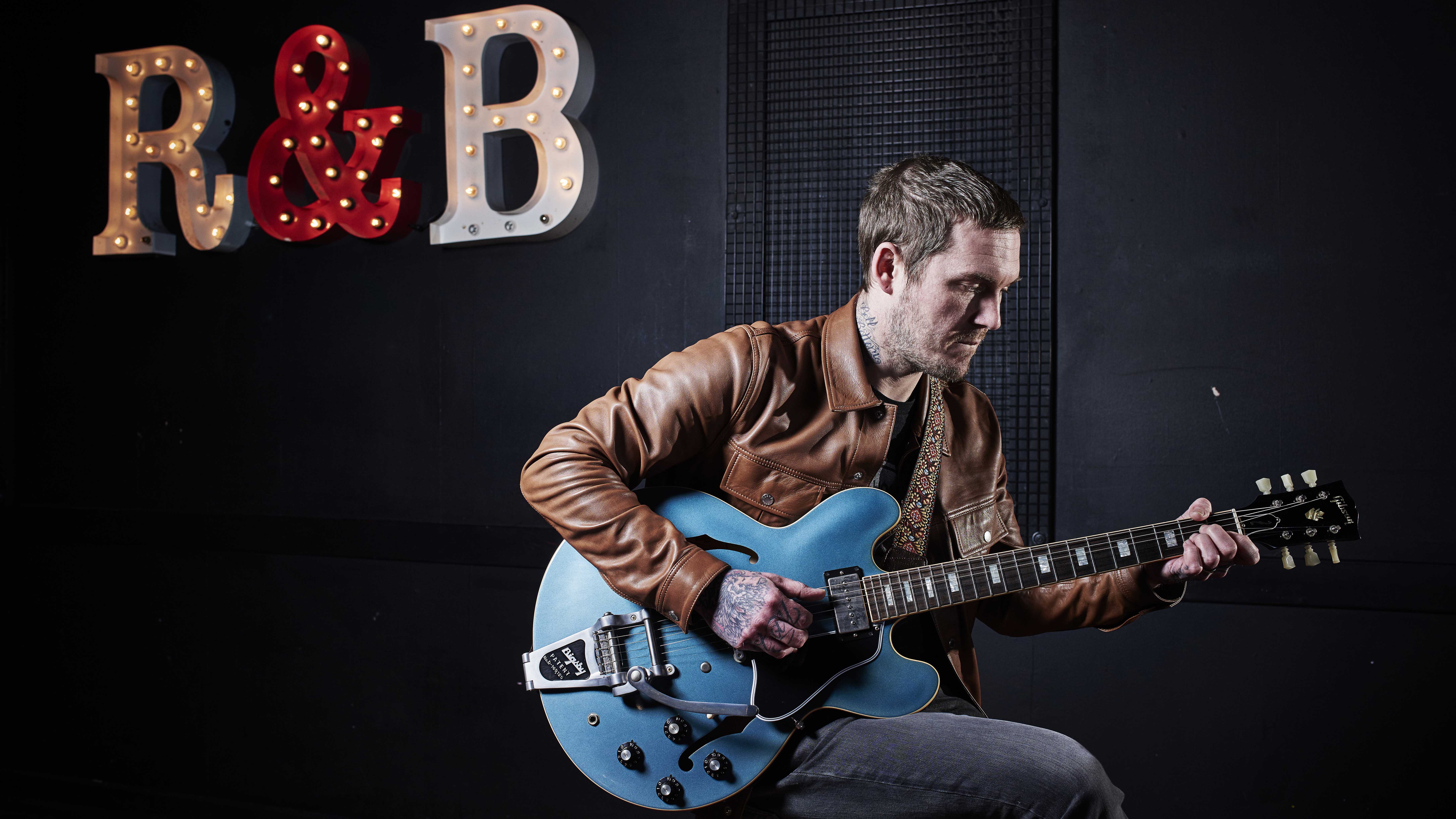
You’ve always moved between Gibson 335s, Les Pauls and Fender Teles with Gaslight and now your solo work – you can't really be aligned to either camp
“I always used what worked for the moment. I love hollow bodies and Gibsons, I love it but just for practicality sake… it’s funny, they feel really different. But when I was really messed up I had to play the Fenders, I even played an SG for a while too because it was so light. But an SG doesn’t sound like a Tele at all. The Tele has a sound that just worked with this record too and I kind of remembered how I liked it because I started on a Tele.”
Do you think there’s something about lightweight guitars for a singer – you don’t feel encumbered by them, it’s freeing?
“Yes, I always liked bigger guitars but I was reading this interview with Derek Trucks and he said he always looks for the lightest guitars and I never did that. I never cared about weight, so I actually tried that and wondered what the lightest Tele here sounds like. So I found the lightest one and I was like, oh wow it resonates more like an acoustic.
“You know what’s cool? You can tell which is a good guitar sometimes without sitting down. You can pick them up and know, this is the best one.
“You know what I’m trying right now not to buy, you know those Nacho Banos guitars? He wrote the Blackguard book, he’s from Spain. That is a sick Tele. Make me one man, come on! I’ve got to play one.”

It will be interesting hearing the details of this album reinterpreted onstage
“We’ve got a piano player with us this time so it’s going to be a bigger thing with the band. Having piano and keys is a huge thing.”
So you’ll be able to focus more on the guitar?
“Yes and the things that I’m not good at Ian is good at, and vice versa. It’s good to have both of us doing it. If I’m still playing piano I’ll do songs by myself too.”
"I feel that this is step one"
I'm going to read a quote back to you now, I'm paraphrasing slightly, but this is something you said to me when I interviewed you last year and it really stood out;
“I feel that in my career, everything I’ve hinted at, everything has been a hint and a partial viewing to what I truly hear in my heart and I’m trying to do. And I’ve never achieved it, and I’m demanding of myself that it will happen”.
So did it happen on this record?
“I feel that this is step one. The door is now opened, walked through and now closed. And I have no choice but to walk forwards. This, I honestly feel, that when I’m done making records will have been day one. I read this thing that Tom Waits had this career when he went through this [journey] like I’m the balladeer, I’m the drunken poet and then one day it was, yes I was that and now I’m this. And I’m seeing this through. And he did The Black Rider and Rain Dogs.
"I feel like something happened that I was working towards and I finally got step one. It felt good though to get there, personally. Even if the record didn’t do well, I feel like I’ve achieved something already.”
Local Honey is released Friday 27 March on Lesser Known Records. Brian Fallon & The Howling Weather will tour the US and Europe in 2021. For more info visit Brianfallon.net

Rob is the Reviews Editor for GuitarWorld.com and MusicRadar guitars, so spends most of his waking hours (and beyond) thinking about and trying the latest gear while making sure our reviews team is giving you thorough and honest tests of it. He's worked for guitar mags and sites as a writer and editor for nearly 20 years but still winces at the thought of restringing anything with a Floyd Rose.
